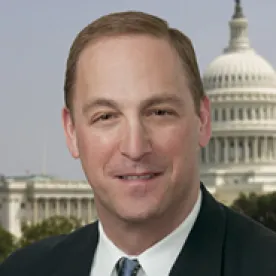While the prosecution of former Senator Ted Stevens is long over, the fallout from the prosecutorial misconduct in that case continues. Congress is now considering legislation that attempts to ensure that federal prosecutors comply in a meaningful way with their obligations under Brady v. Maryland and its progeny. The legislation has some provisions that could possibly help protect Brady rights, but even if it passes – which appears doubtful – the bill is unfortunately more of a political gesture than an effective tool for protecting the rights of criminal defendants.
Perhaps the most significant provision in the proposed Fairness in Disclosure Act is one that addresses the timing of Brady disclosures. Under current practice, prosecutors often delay the required disclosures of exculpatory information as long as possible. Given that the only time limitation appears to be the ill-defined requirement that information must be provided within a reasonable time for the defense to use it at trial, the law effectively allows the government to disclose Brady information almost any time before trial. Because the legislation requires the disclosure of such information “without delay after arraignment,” it has the potential to lessen the incidence of late disclosure of Bradyinformation by prosecutors. The proposed bill’s requirement that Brady information be provided before the entry of a guilty plea is also commendable.
Other provisions that address the location and possession of the information at issue may also be helpful. The act would make clear that information contained in witness statements must be disclosed, and may not be withheld until it is provided – after a witness testifies at trial – pursuant to the Jencks Act. The bill also requires that prosecutors disclose not only information that they know but also information that they should know – an attempt to prevent prosecutors from insulating themselves from exculpatory information. The proposed law also makes clear the requirement of disclosure not only of the information in possession of the prosecutors and the investigatory agency but also of information in the hands of any other agency that participates in the investigation.
Other provisions, such as those relating to whether inadmissible evidence must be disclosed and the remedies for violation of the act, also have the potential to have a favorable impact on Brady compliance.
The problem is that, in the end, the Fairness in Disclosure Act will be effective only to the extent that it clearly defines what information falls within the scope of prosecutors’ obligations to disclose. And in that respect, the bill largely substitutes one ambiguous standard for another. On the one hand, it discards the approach that turns entirely on “materiality” of the information – a concept that works for appellate courts after the fact but is an impossible standard to enforce against prosecutors before trial. On the other hand, the bill’s requirement that prosecutors disclose information that is favorable to the defense as to guilt or sentencing does not solve the real obstacle to ensuring that defendants’ Brady rights are protected. That’s because it still leaves it in the hands of prosecutors – who may not know what defense the defendant will utilize – to determine whether a piece of information is favorable or not. To many criminal defense lawyers, that is the real problem that causes problems with Brady compliance even with well-intentioned prosecutors.
Despite these flaws, a number of organizations, including the American Bar Association, have expressed support for this bill. Nevertheless, at least one website that carries predictions on the fate of legislation puts the likelihood of passage of the bill at 2 percent.It is surely a good development to have politicians and the public focused on the need for reform to protect criminal defendants’ rights, but the Fairness in Disclosure Act may not ultimately be the solution to this issue.



 />i
/>i

